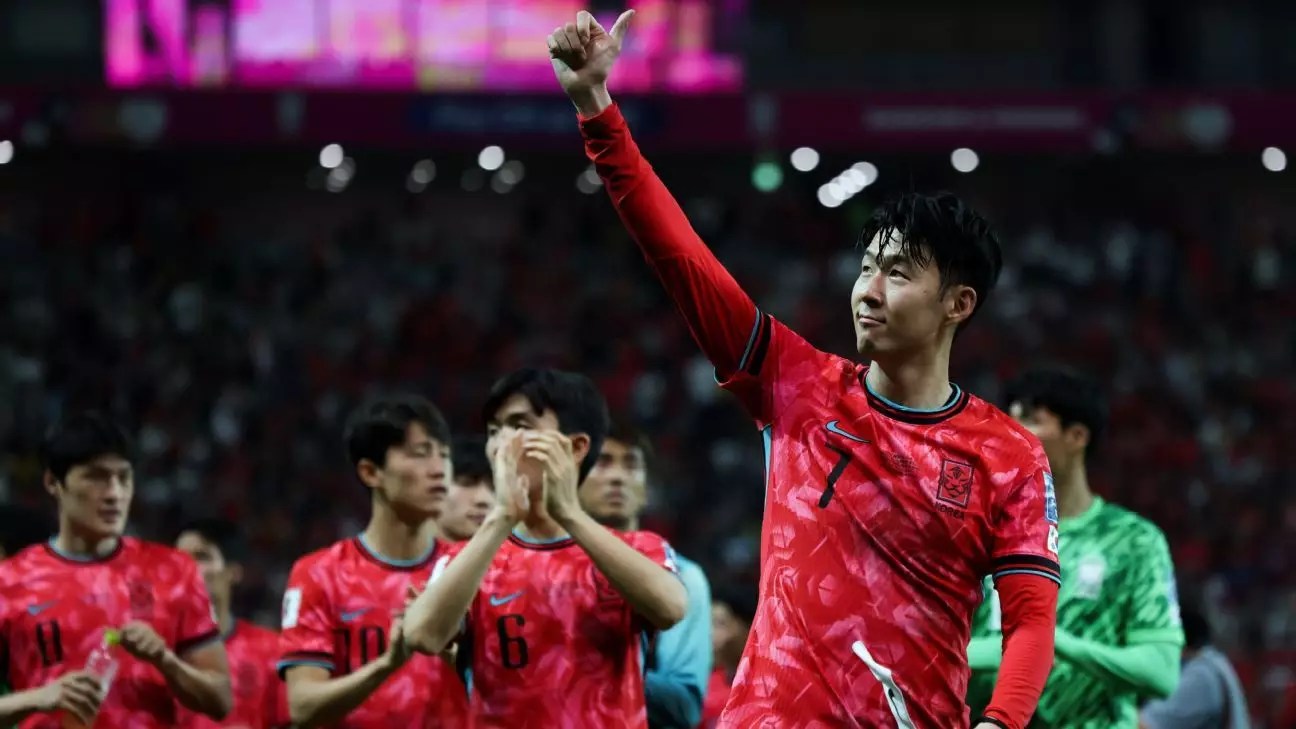Qatar has emerged as the dominant force in the Asian qualifiers for the 2026 FIFA World Cup, following their back-to-back wins at the AFC Asian Cup. Their performance in the second round saw them top Group A with five wins and a draw, showcasing their strength and depth in the squad. Star striker Almoez Ali’s impressive goal-scoring form has been a highlight, finishing as the joint-top scorer with seven goals despite missing the final two games.
Kuwait, after being barred from the 2018 World Cup, made a strong comeback in the second round of the qualifiers. A crucial 1-0 win over Afghanistan in their final game helped them secure progress to the third round, showing their determination and resilience on the international stage.
Japan’s flawless performance in the second round with six wins and 24 goals scored highlighted their attacking prowess and solid defense. Experimenting with a 3-2-4-1 formation in the final qualifier showcased their versatility and tactical awareness under coach Hajime Moriyasu.
Despite forfeiting a home tie, North Korea’s resilience shone through as they secured a spot in the third round with an important win over Syria. Their ability to clinch the second qualifying spot in Group B demonstrated their determination and skill on the field.
South Korea’s strong performance in the second round, led by Son Heung-Min’s goal-scoring prowess, saw them miss out on a perfect record but still emerge as a formidable contender. The team’s attacking flair and solid defense make them a team to watch in the upcoming qualifiers.
China faced challenges in the second round, with their only wins coming against Singapore. Their narrow qualification on head-to-head record against Thailand highlighted their inconsistencies and vulnerabilities in the qualifiers.
Oman’s journey to the third round was not smooth, as they faced tough competition in Group D. Their ability to top the group by a narrow margin showcased their competitiveness and resilience in the face of tough opposition.
Kyrgyz Republic’s control over Group D in the second round, culminating in a crucial draw with Oman, demonstrated their determination and focus on securing a spot in the third round. Their superior goal difference proved vital in their qualification.
Iran’s guaranteed top-two finish in Group E highlighted their consistency and experience in the qualifiers. Despite being held to draws by Uzbekistan, Team Melli remains a strong contender for the upcoming World Cup.
Uzbekistan’s strong performance in the second round, coupled with their creditable draws against Iran, showcased their determination to qualify for the World Cup. The team’s consistency and resilience make them a strong prospect for the expanded contingent of representatives from Asia.
Iraq’s flawless performance in Group F, finishing with a perfect 18-point haul, highlighted their strength and determination in the qualifiers. After a sole World Cup appearance in 1986, the Iraqis look set to make a strong push for qualification this time around.
Indonesia’s first-time qualification to the third round comes after back-to-back wins over Vietnam, showcasing their growth and potential in the qualifiers. The Southeast Asian battle for second spot in Group F saw Indonesia emerge victorious, setting the stage for an exciting journey ahead.
Jordan’s advance to the third round as Group G winners, after a remarkable run in the Asian Cup earlier in the year, showcased their determination and skill on the field. Their come-from-behind win against Saudi Arabia highlighted their resilience and ability to compete with continental heavyweights.
Saudi Arabia’s journey to a third consecutive World Cup faces challenges after finishing as runners-up in Group G. Their seeding alongside powerhouse teams like Japan and Australia sets the stage for a tough path ahead, testing their quest for qualification.
United Arab Emirates’ impressive performance in the second round, claiming 16 points from a possible 18, highlighted their consistency and determination in the qualifiers. The Emiratis’ previous near misses in qualifying make them a likely beneficiary of the tournament’s expansion.
Bahrain’s progression to the third round, despite minor hiccups along the way, showcased their resilience and determination on the field. The team’s ability to secure a top-two spot in Group H alongside UAE highlighted their competitiveness and strength in the qualifiers.
Australia’s impressive performance in the second round, with 22 goals scored and none conceded, showcased their attacking prowess and defensive solidity. The Socceroos’ ability to maintain a perfect record against tough opposition sets them up as strong contenders in the upcoming qualifiers.
Palestine’s qualification to the third round, amidst challenges including being unable to host home games, demonstrated their resilience and determination. Finishing above Lebanon in the second-round fixtures highlighted their ability to overcome adversity and secure progress.


Leave a Reply